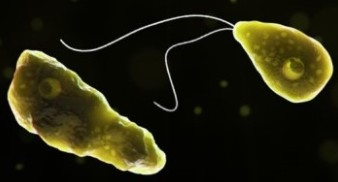11-year-old girl diagnosed with amoebic meningitis in Kerala; cases rise to 3
By IANS | Updated: August 20, 2025 13:40 IST2025-08-20T13:31:02+5:302025-08-20T13:40:14+5:30
Malappuram (Kerala), Aug 20 An 11-year-old girl from Chelari in Malappuram district of Kerala has been diagnosed with ...

11-year-old girl diagnosed with amoebic meningitis in Kerala; cases rise to 3
Malappuram (Kerala), Aug 20 An 11-year-old girl from Chelari in Malappuram district of Kerala has been diagnosed with amoebic meningitis, also known as brain-eating amoeba, a rare but often fatal brain infection, on Wednesday.
The child, who tested positive in a PCR (polymerase chain reaction) test conducted earlier this week, is undergoing intensive treatment at Kozhikode Medical College Hospital in north Kerala and is currently on a ventilator, health officials said.
She was admitted to the hospital last week due to a fever. With this, the number of patients undergoing treatment for the disease at the hospital has risen to three, including a three-month-old infant and a 40-year-old man who were admitted earlier this month.
All three patients are said to be in a critical condition.
On August 14, a nine-year-old girl from Thamarassery in Kozhikode district died due to a brain-eating amoeba infection.
The girl was initially admitted to a local hospital on August 13 with a high fever. As her condition deteriorated, she was shifted to Kozhikode Government Medical College the next day, where she died within hours of admission.
Subsequent tests confirmed that she was suffering from primary amoebic meningoencephalitis, a disease triggered when the amoeba enters the body through the nose and infects the brain.
Similarly, a 39-year-old woman from Chengottukavu in Kozhikode had died of amoebic meningitis in February this year after battling for life for over a month in the medical college hospital.
Amoebic meningitis, caused by free-living amoebae entering the body through the nose and reaching the brain, progresses rapidly and carries a fatality rate of more than 97 per cent. Symptoms include high fever, severe headache, nausea, vomiting, and confusion, often followed by seizures and coma.
Following the cases, the state health department has urged the public to take precautions such as avoiding swimming or bathing in stagnant or contaminated water, ensuring proper chlorination of public water sources, and using nose clips where water exposure is unavoidable.
Disclaimer: This post has been auto-published from an agency feed without any modifications to the text and has not been reviewed by an editor
Open in app